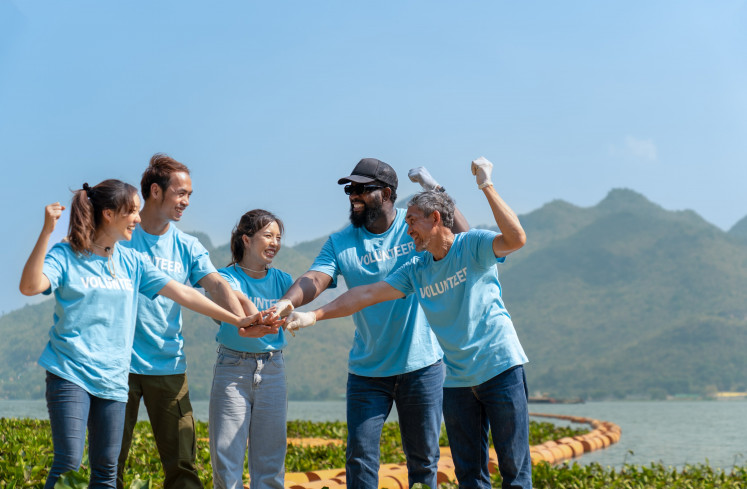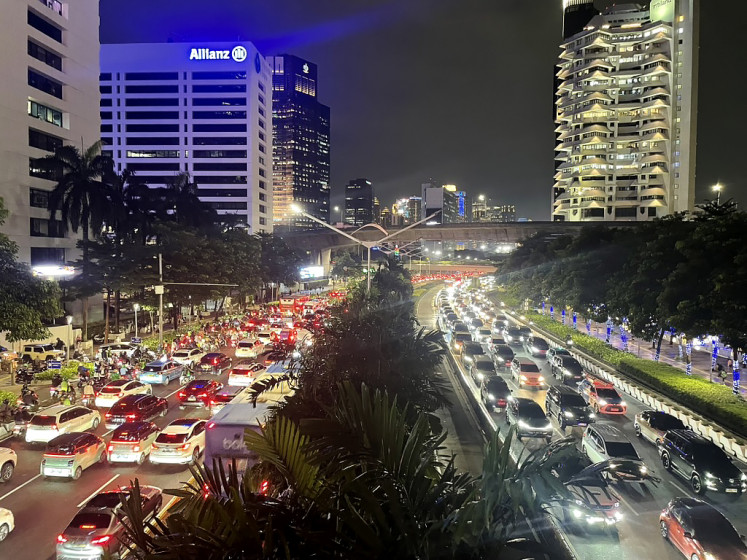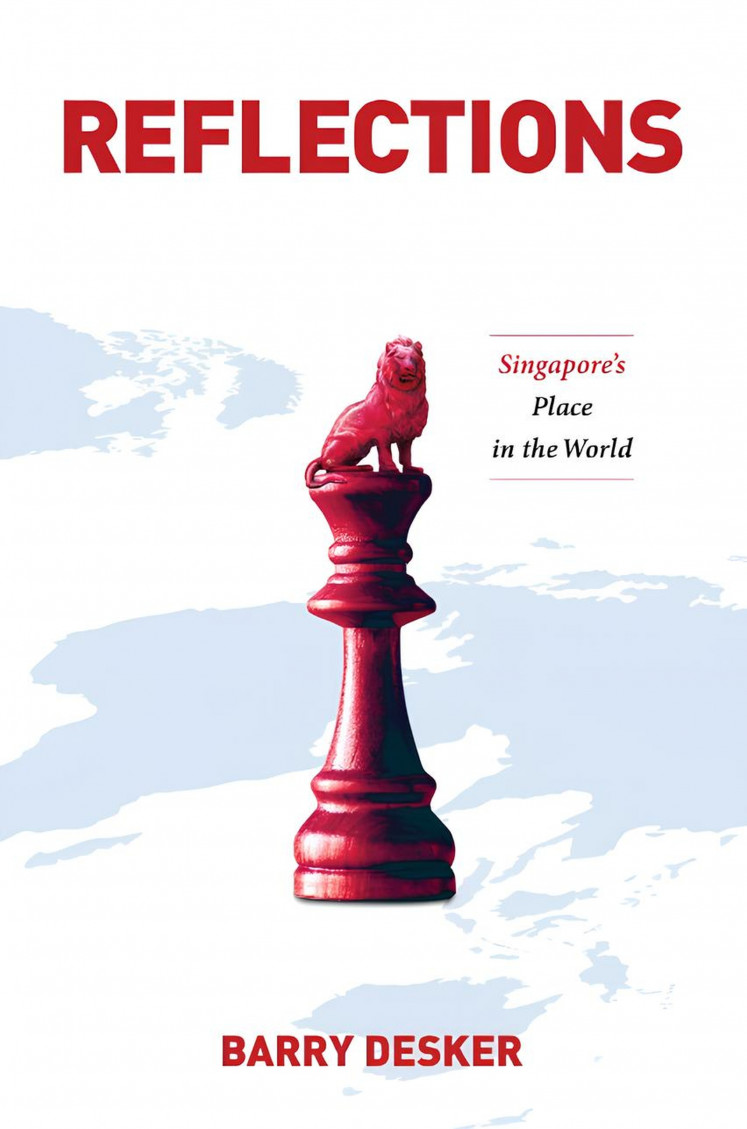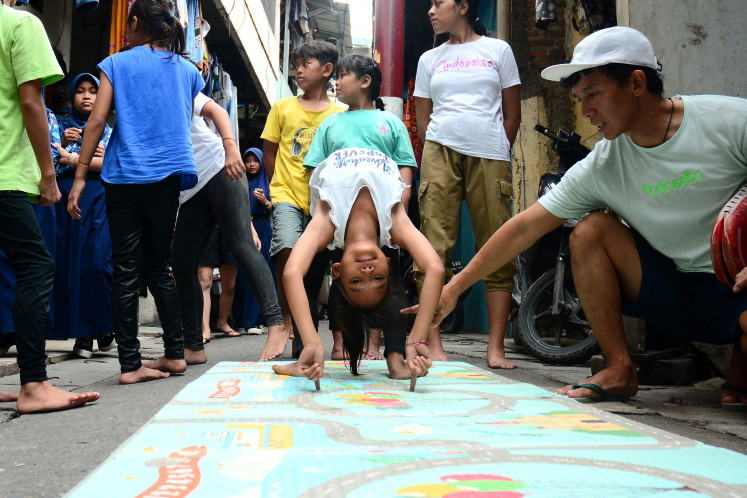Popular Reads
Top Results
Can't find what you're looking for?
View all search resultsPopular Reads
Top Results
Can't find what you're looking for?
View all search results'I don’t want to eat fish that has eaten plastic': Student gives letter for Merkel to German envoy
German Ambassador to Indonesia Peter Schoof called on the Indonesian government to prove if a certain German company had violated the agreement on waste import.
Change text size
Gift Premium Articles
to Anyone
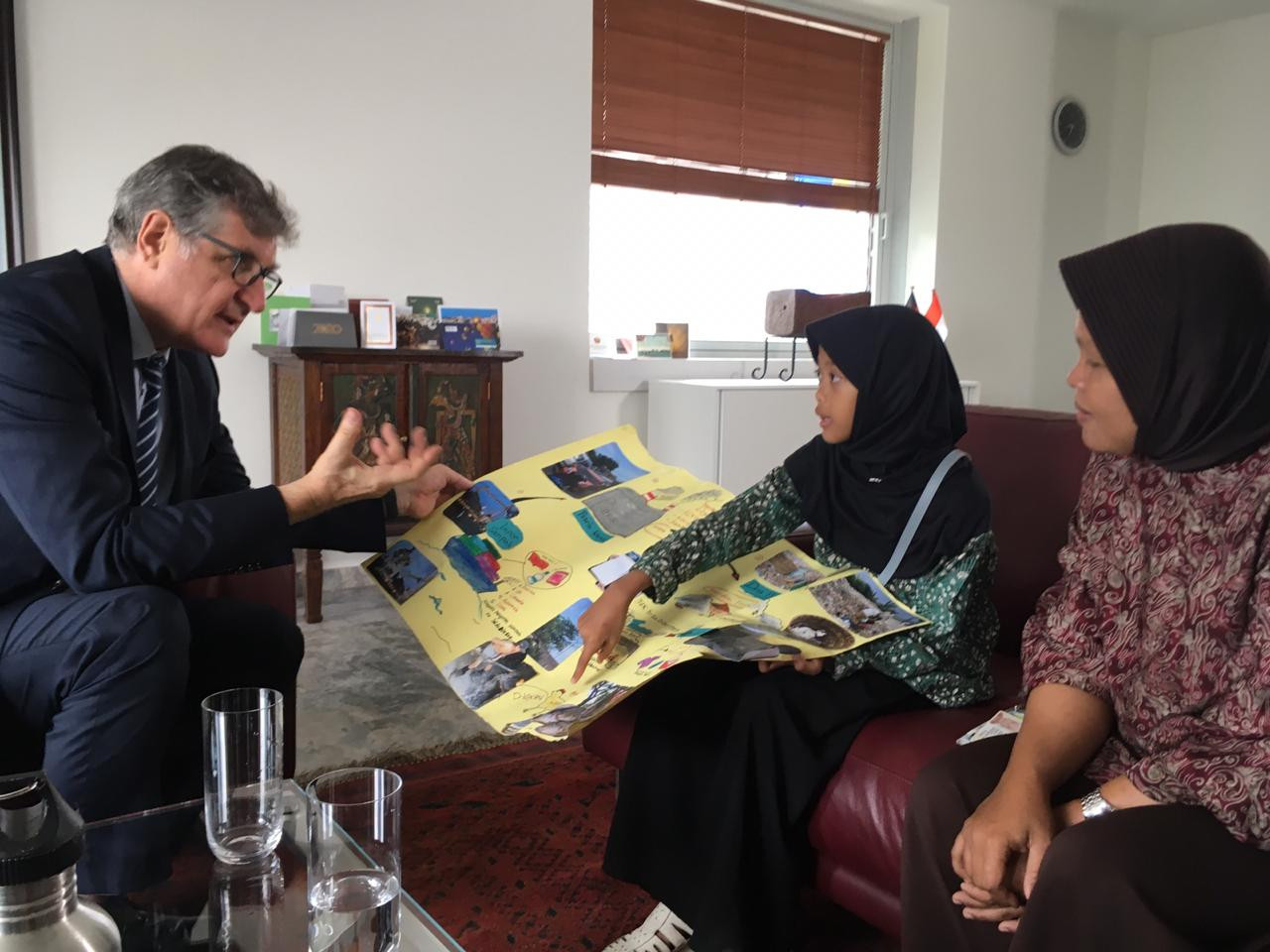 During her conversation with Schoof, Nina showed a diagram she made on a yellow card board. The diagram was about her observation on the imported waste journey from Tanjung Perak Port in Surabaya all the way to Bangun village in Mojokerto and Tropodo village in Sidoarjo. (Courtesy of Devianti Faridz/-)
During her conversation with Schoof, Nina showed a diagram she made on a yellow card board. The diagram was about her observation on the imported waste journey from Tanjung Perak Port in Surabaya all the way to Bangun village in Mojokerto and Tropodo village in Sidoarjo. (Courtesy of Devianti Faridz/-)
W
earing a black hijab, green blouse and long black skirt, Aeshnina Azzahra, a young environmentalist from Gresik, East Java, confidently stepped inside the German Embassy in Central Jakarta on Tuesday.
In her backpack, the 12-year-old student of SMP 12 Gresik state junior high school carried a letter intended for German Chancellor Angela Merkel to demand the European country stop sending waste to Indonesia.
Nina’s visit to the embassy was to personally hand over the letter, which she wrote in English, to German Ambassador to Indonesia Peter Schoof.
During her conversation with Schoof, Nina showed a diagram she had made on yellow cardboard. The diagram was about her observation on the journey of imported waste from Tanjung Perak Port in Surabaya all the way to Bangun village in Mojokerto and Tropodo village in Sidoarjo.
“The imported paper waste was contaminated by plastic waste and it affected the people’s lives and the environment,” Nina said as quoted in a statement made available to The Jakarta Post.
Many residents in Bangun village make a living by sorting trash to be sold to recycling centers. However, too much waste is sent there so it pollutes the environment.
Some tofu factories in Tropodo village have been using plastic waste as fuel for their production. While this keeps their business running, the chemical waste produced contaminates the soil in the village.
Read also: Plastic or egg? Imported waste contaminates East Java’s food chain: Report
“I bought a fish at Rolak Songo Market [in Sidoarjo, East Java] and when I opened its stomach I found plastic. I don’t want to eat fish that has eaten plastic," Nina wrote in the letter.
She called on the German government also to tell other European countries to stop sending plastic waste to Indonesia and other developing countries in Asia.
Greenpeace last year estimated that Indonesia’s waste imports soared from 120,000 tons in 2017 to 420,000 in 2018. The UK exported the most to the archipelago, with 67,807 tons between January and November 2018, followed by Germany with 59,668 tons and Australia with 42,130 tons.
In response to Nina’s explanation, Schoof said it was difficult to know the exact percentage of plastic waste contaminating scrap paper waste imported to Indonesia. He instead called on the Indonesian government to prove if any particular company had violated the agreement regarding waste imports, so that the German government could take the case to court.
Schoof also said he had advised Germany to apply tighter controls in inspecting waste containers before they are exported to Indonesia, and that Berlin had attempted to help Jakarta build recycling facilities.
“The bigger part of the problem here in Indonesia is that we have to find ways to collect the garbage in neighborhoods, separate between recyclable and unrecyclable garbage and create factories to recycle the waste,” he said.
At the end of their discussion, Nina handed over her letter for Merkel to Schoof. Attached to the letter were pictures of an identity card belonging to a German woman as well as the packaging of a German-made beverage that she found among the waste in Bangun village.
Read also: ‘I want my future to be better’: East Java student sends letter to Merkel about imported trash
Schoof promised to send the letter to Merkel on the same day and try his best to get the chancellor to reply to her letter.
After meeting with Schoof, Nina visited the Australian Embassy in South Jakarta to handover a similar letter addressed to Australian Prime Minister Scott Morrison.
Last year, Nina also wrote a similar letter to United States President Donald Trump. The US is also among the largest waste exporters to Indonesia.
She mentioned how the rivers in her neighborhood were “very dirty and smelly” as many factories – or plastic recyclers that handle the imported waste – disposed of their waste carelessly on land and water.
Throughout 2019, Indonesia returned hundreds of waste containers to the US, Europe and Australia. The waste -- which was supposed to contain only clean scrap paper to be recycled -- was contaminated with hazardous waste and toxic waste such as diapers and plastic. Most of the waste would only end up as garbage in landfills.

